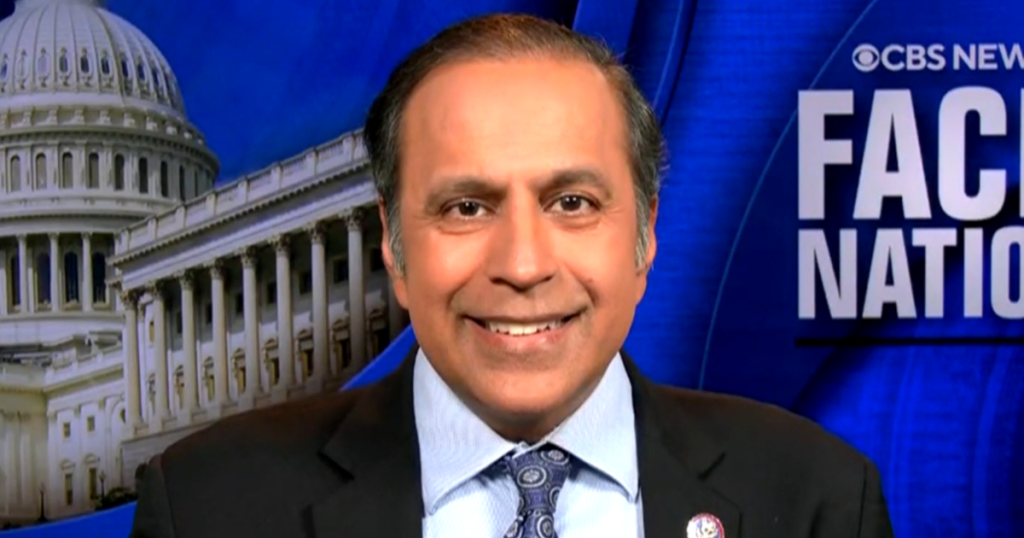In a recent interview, Congressman Raja Krishnamoorthi, the leading Democrat on the House Select Committee on the Chinese Communist Party, shared his concerns regarding new visa policies targeting Chinese students in the U.S. The remarks come in the wake of the Secretary of State’s announcement about heightened vetting and visa revocations for students linked to China, sparking a vigorous debate about national security versus open access to education. This discussion also drew connections to the broader geopolitical context, particularly U.S. relations with China and its implications for global security.
| Article Subheadings |
|---|
| 1) Background on Visa Policy Changes |
| 2) Implications for Chinese Students |
| 3) National Security Concerns |
| 4) Geopolitical Context: U.S.-China Relations |
| 5) Summary of Key Takeaways |
Background on Visa Policy Changes
The recent announcement by the Secretary of State regarding the intention to review and possibly revoke visas for Chinese students has become a contentious topic. Historically, the U.S. has welcomed international students, especially those from China, where nearly 300,000 students currently hold valid visas. The proposed policy aims to identify and remove those potentially associated with the Chinese Communist Party (CCP) or studying in sectors deemed sensitive for national security. This escalation comes as part of broader concerns regarding intellectual property theft and national security risks attributed to the influence of the CCP.
Implications for Chinese Students
Congressman Krishnamoorthi expressed profound concerns about the policy’s implications, emphasizing that it could lead to discrimination against all Chinese students, irrespective of their individual backgrounds or activities. He articulated that while the focus on students with direct ties to the CCP is justifiable, the broad brushstroke approach proposed seems overly punitive and unfair. He noted that this could undermine both academic diversity and the contributions these individuals make to the U.S. economy and innovation. The ramifications extend beyond individuals; they impact America’s reputation as a leading destination for global education.
National Security Concerns
The increasing emphasis on national security raises important questions about how to strike a balance between vigilance against potential espionage and supporting educational exchange. Congressman Krishnamoorthi acknowledged that heightened vetting mechanisms are necessary in certain critical fields where security threats are more pronounced. However, he cautioned that the policy could inadvertently send a message of exclusion, benefiting regimes like that of the CCP that desire to see less collaboration and engagement between the U.S. and young Chinese professionals. Therefore, discussions about security must be coupled with a recognition of the benefits that educational exchange brings to both nations.
Geopolitical Context: U.S.-China Relations
During the interview, the congressman also addressed the broader geopolitical context in which these visa policies sit. He pointed to comments made by officials regarding military actions and preparations by Beijing towards Taiwan. The military maneuvers undertaken by China are seen as a direct challenge not only to U.S. interests but also to the stability of the Indo-Pacific region. The struggle for influence is mirrored in the realm of education, where losing access to talent could severely weaken the U.S.’s competitive edge. Historically, Chinese students have registered in large numbers at U.S. institutions, and thus limiting this can change the landscape of international academic collaboration.
Summary of Key Takeaways
The interview concluded with Congressman Krishnamoorthi emphasizing the importance of thoughtful U.S. policy toward China that embraces clarity and consistency, especially during turbulent times marked by military rhetoric and economic competition. Striking a balance between national security concerns and fostering international educational collaboration appears critical to achieving a sustainable future relationship between the two powers. The congressman’s insights illuminate the complexity of national security and the educational domains, urging deliberation over hasty actions that could foster division.
| No. | Key Points |
|---|---|
| 1 | New visa policies are targeting Chinese students to prevent espionage. |
| 2 | Congressman Krishnamoorthi criticizes the broad nature of these policies. |
| 3 | There are fears these policies could harm the U.S. economy and innovation. |
| 4 | Geopolitical situation regarding Taiwan influences discussions on U.S.-China relations. |
| 5 | Balancing security and educational cooperation is essential for future relations. |
Summary
The interview with Congressman Raja Krishnamoorthi highlights the evolving dialogue surrounding U.S. visa policies for Chinese students, reflecting broader national security concerns and the delicate balance required in international relations. As the U.S. navigates its position in a rapidly changing geopolitical landscape, understanding the implications of these policies will be critical for fostering meaningful exchanges and ensuring the country remains a leader in education and innovation.
Frequently Asked Questions
Question: What are the main objectives of the new visa policies targeting Chinese students?
The main objectives of the new visa policies are to ensure national security by preventing individuals with potential ties to the Chinese Communist Party from studying in sensitive fields.
Question: What are the implications of these visa changes for Chinese students?
The implications include possible discrimination against a broad array of Chinese students, potentially impacting their ability to study in the U.S. and hindering contributions to the economy and innovation.
Question: How do national security concerns intertwine with the educational exchange?
National security concerns necessitate vigilance against espionage, yet educational exchange fosters collaboration and innovation, which are essential for maintaining the U.S.’s competitive edge globally.
